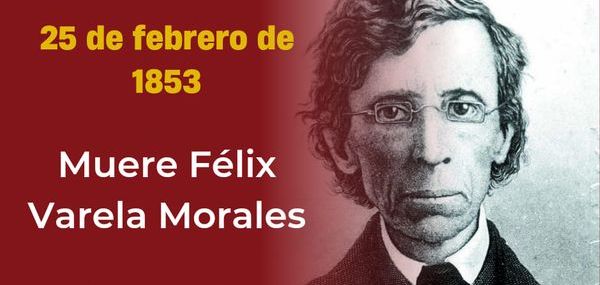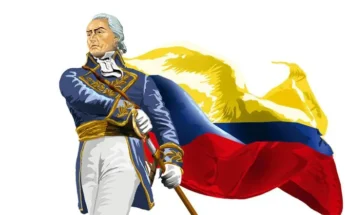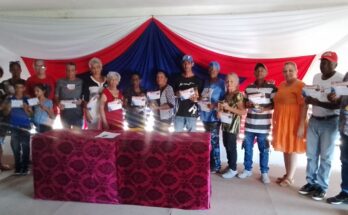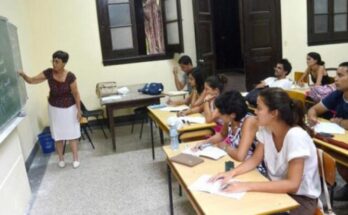Florida, Feb. 26 – Born in Havana on November 20, 1788, Felix Varela Morales transcended in the history of his homeland as a philosopher, pedagogue and the most notable exponent of the independence ideas in the first half of Cuba’s 19th century, since he deployed an intense intellectual activity, favorable to the change and transformation of the social conscience.
Priest, writer and teacher at the Seminary of San Carlos and San Ambrosio, he used the most advanced pedagogical methods of the time, applied the method of eclectic philosophy, prepared the first laboratory of Physics and Chemistry that the country had, introduced experimentation in the study of science and organized literary gatherings where he shared with his students the topics of culture, ideology, science, and Homeland, undoubtedly, his favorite subjects.
In January 1821, Father Varela inaugurated in the Seminary of San Carlos, what turned out to be the first Chair of Law in Latin America, which he recognized as «the source of the Civic Virtues and the base of the great building of our happiness», where he disserted on legality, civil responsibility and the restraint of absolute power, and cultivated in his students the seed of liberation and human dignity.
In addition to his teaching work, Félix Varela carried out other activities for the promotion of Cuban culture, as he founded the first Philharmonic Society of Havana, joined and worked in the Economic Society of Friends of the Country, wrote plays that were presented on Havana stages, and wrote textbooks for philosophy students.
Father Varela formed in the classrooms the best men of the first half of the 19th century and as a deputy to the Cortes de Cadiz in 1821, he defended the right to autonomy of the American territories, proposed the abolition of slavery in Cuba and the modernization of education, and was condemned to death for his advanced ideas.
He settled in the United States, where he was forced to live the rest of his days and published the pro-independence newspaper El Habanero, with clandestine circulation in Havana, opened several schools for children and carried out a wide religious work until his death on February 25, 1853.





